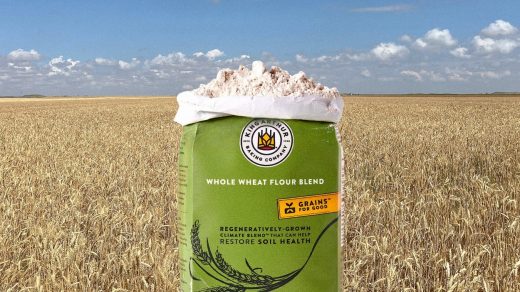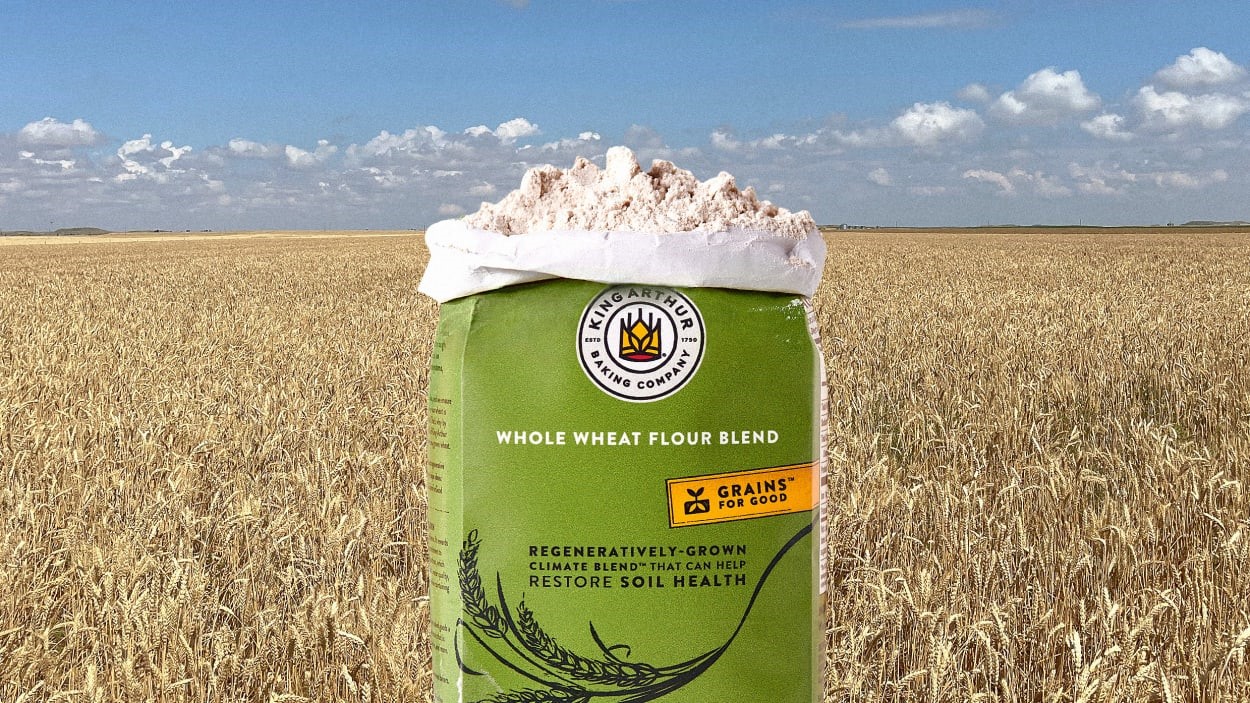Ready for holiday baking? King Arthur wants you to try its new regeneratively grown flour
A new King Arthur Baking Company product is hitting the shelves: In a verdant green bag, the company is now selling a 100% Regeneratively-Grown Climate Blend—a first for the more than 230-year-old brand—meant to help restore soil health.
The whole wheat flour blend is a mix of grains developed by the Breadlab, a research lab at Washington State University that breeds varieties of wheat, barley, and rye that are healthier for both humans and the soil than commodity wheats. Those commodity wheats, grown for the industrial-scale market, have been bred primarily for durability and disease-resistance, or with high yields in mind, at the expense of attributes like nutrients, flavors, and soil benefits.
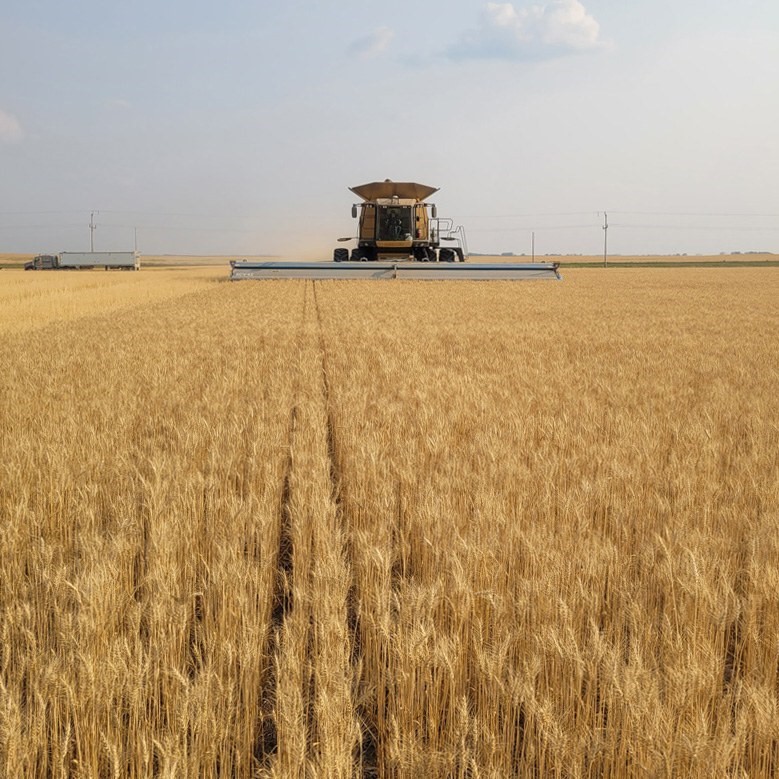
Not only do those industrial-scale farming practices end up harming the soil, often requiring lots of fertilizer that removes nutrients from the land, those commodity crops are then more susceptible to climate change, as extreme weather like high temperatures affects yields.
Regeneratively-grown wheats instead use practices that improve soil health and that cultivate more nutrient-dense grains. Those practices can include no or limited soil tilling, crop rotation, cover cropping, and minimizing inputs like fertilizer. Growing wheat this way won’t solve “climate chaos,” Stephen Jones, director of the Breadlab, is careful to note. “We’re going to live with it while other people smarter than us solve it. [But] we’re going to eat in the meantime. We’re going to not have crop failure. And that’s our job as breeders.”
One of the three grains included in the new King Arthur blend is a type of perennial, meaning it will grow back naturally, only needing to be replanted every two to three years (typically, wheat is planted every fall). This means farmers don’t have to disturb the soil as much, which reduces erosion and keeps the soil health intact. It also adds a new root profile to the land, especially when mixed with annual wheats. “These roots will go further down than the annual wheats . . . they’ll mine different nutrients from the soil and bring them up and make them more available,” Jones says. They also produce more biomass, the straw and chaff left behind from harvesting that can then cover the soil and add organic matter back in.
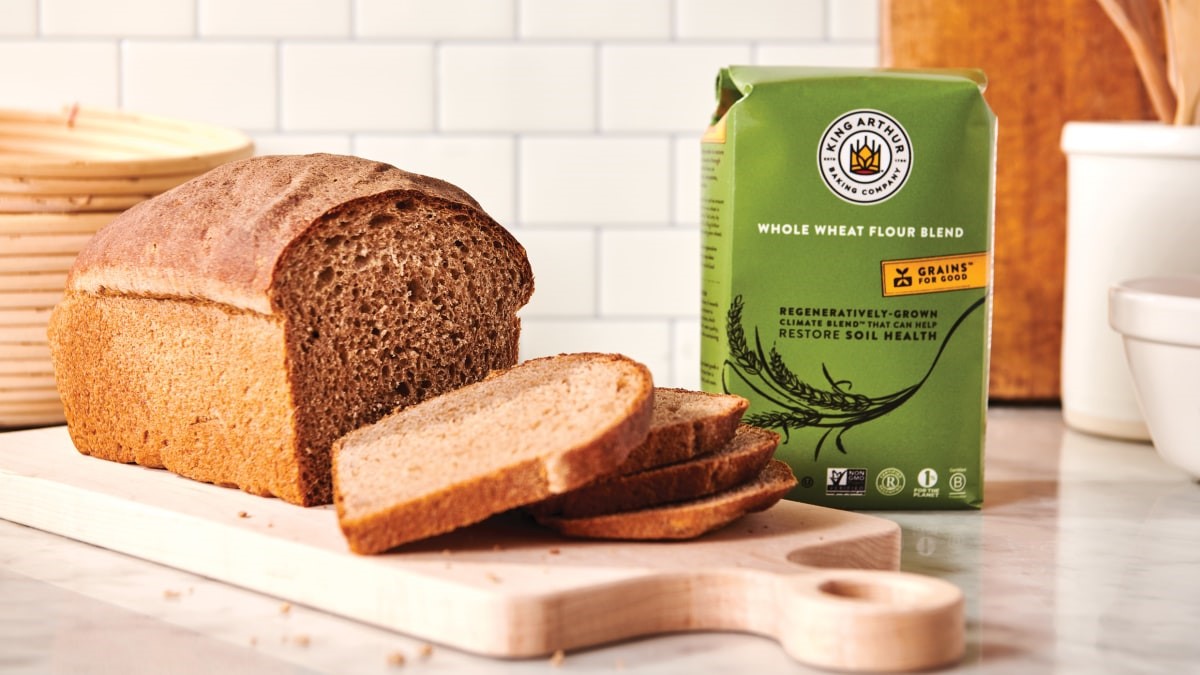
The King Arthur blend, which the company describes as having a “rich, nutty flavor,” has been in the works for about two years (though King Arthur has been working with the Breadlab since 2009). That’s longer than it takes to bring most new products from the brand to market, King Arthur COO Janis Abbingsole, acknowledges. That’s because getting this blend to store shelves had to start first with farmers—and meant waiting until they had enough yield.
The grains are grown by farmers in North Dakota and Montana. The Breadlab helped King Arthur find these farmers, who were already interested in using regenerative practices, and then paid them and supplied technical assistance to help them grow them. “We know that we can never tell a farmer what to do,” Abbingsole says, “but we can respect a farmer’s livelihood and expertise and pay them in kind to engage in this different farming practice that the other systems of conventional farming do not yet support.”
In a commodity market, crops are predictable: You know that when you buy a typical bag of King Arthur white flour, it will be the same every time, and it will perform the same when you bake loaves of bread or trays of muffins. But King Arthur’s regeneratively-grown blend might not be quite so consistent. The exact mix of grains may change every year, depending on the yields, which may be affected by climate events.
“This is one of the beautiful things about this product, is that it’s introducing into our portfolio variability,” says Suzanne McDowell, King Arthur’s VP of corporate social responsibility and sustainability. The blend allows for farmers to have “more variability and resilience” through the year, including through different climate conditions.
Though consistency may be important for bakers, McDowell isn’t concerned about how they’ll handle this blend. Instead, she says it’s an opportunity to “build our muscles about baking in a more variable space, and bring our consumers along with us.” The brand’s Baker’s Hotline will also be available to answer any questions customers have, and recipes for the blend are included both on the packaging and on the King Arthur website.
And Jones notes that consistency in fields comes at a cost—like decimating soil health, requiring more and more fertilizer to grow the same amount, or running the risk of crop failure; if you plant 1,000 acres of one type of wheat that doesn’t like the heat, and then that year sees record temperatures, “you’re in trouble.”
The climate blend is instead a way to work with what the land gives. This might seem at odds with scaling up the product, which is why King Arthur is doing a phased launch: The climate blend is first available exclusively at Whole Foods and on King Arthur’s own website, although Abbingsole says they’ll gradually roll it out further. “It’s just [about] taking it slowly out of respect for what the yields are and our ability to bring the product to market consistently,” Abbingsole says.
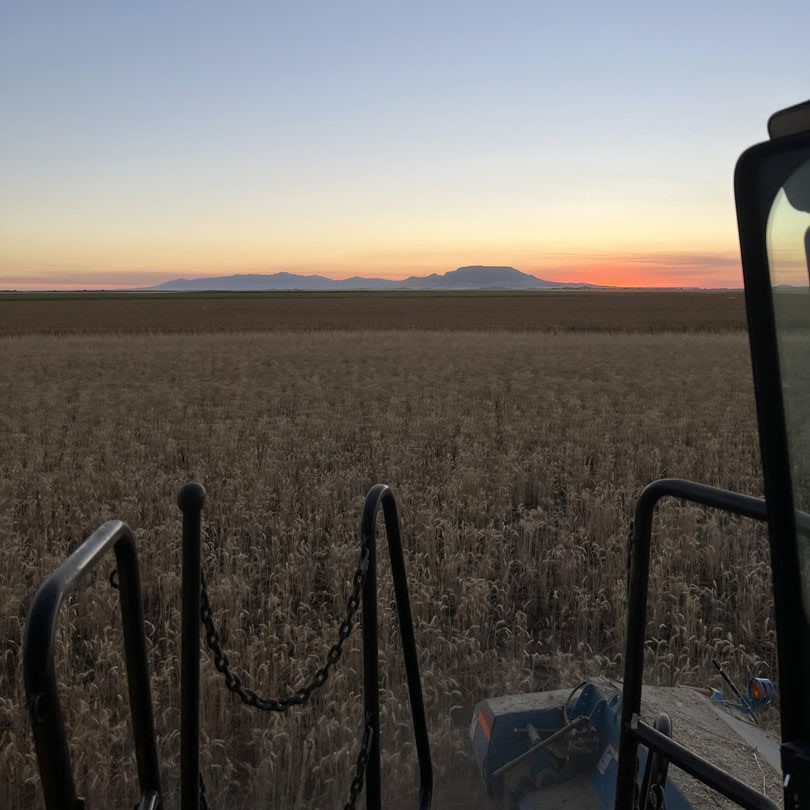
King Arthur is also using just one of its about 30 milling partners for this climate blend but eventually it plans to bring regenerative grains to its entire milling network. That’s part of the brand’s goal that by 2030, 100% of the flour in its bags will be milled from regeneratively-grown wheat. “It is scaled at a pace that meets the farmers where they are and meets our consumers where they are,” Abbingsole says. There are other regeneratively-grown flours in King Arthur’s portfolio; all its white whole wheat flour is supplied by Farmer Direct, a collective that sources from farmers who the brand says are “committed to using regenerative practices”—but the new climate blend is it’s first 100% regeneratively-sourced product, and is verified by third-party service Regenified.
This regeneratively-grown climate blend is a big step in King Arthur’s journey toward that goal, but the company hopes it isn’t the only one making these changes. (Other companies are also working on regeneratively-grown flours, or using regeneratively-grown grains for things like cereal and beer, though there are still questions as to whether regenerative agriculture can succeed at scale.)
“We’re one CPG company in a sea of CPG companies talking about work,” Abbingsole says. “And while we have our particular approach that we’re taking, we believe it will take all CPG companies to make these system shifts happen.”
(16)

